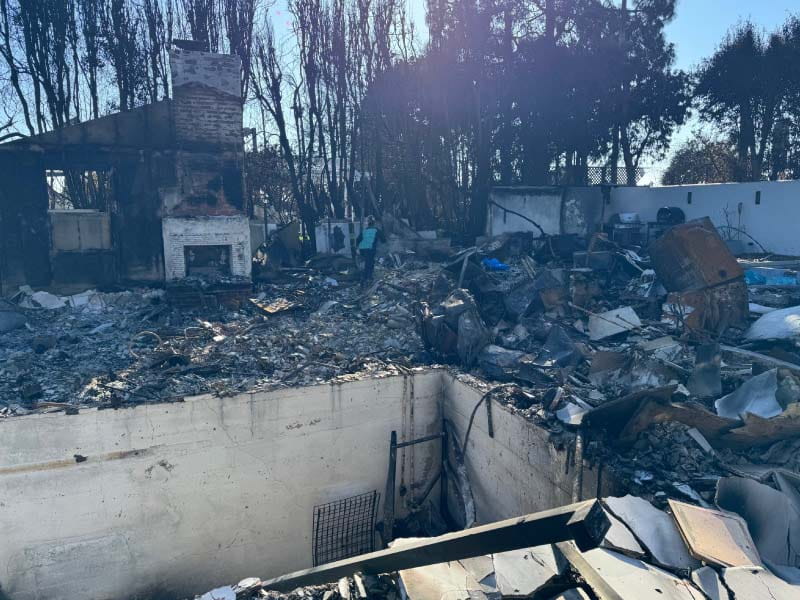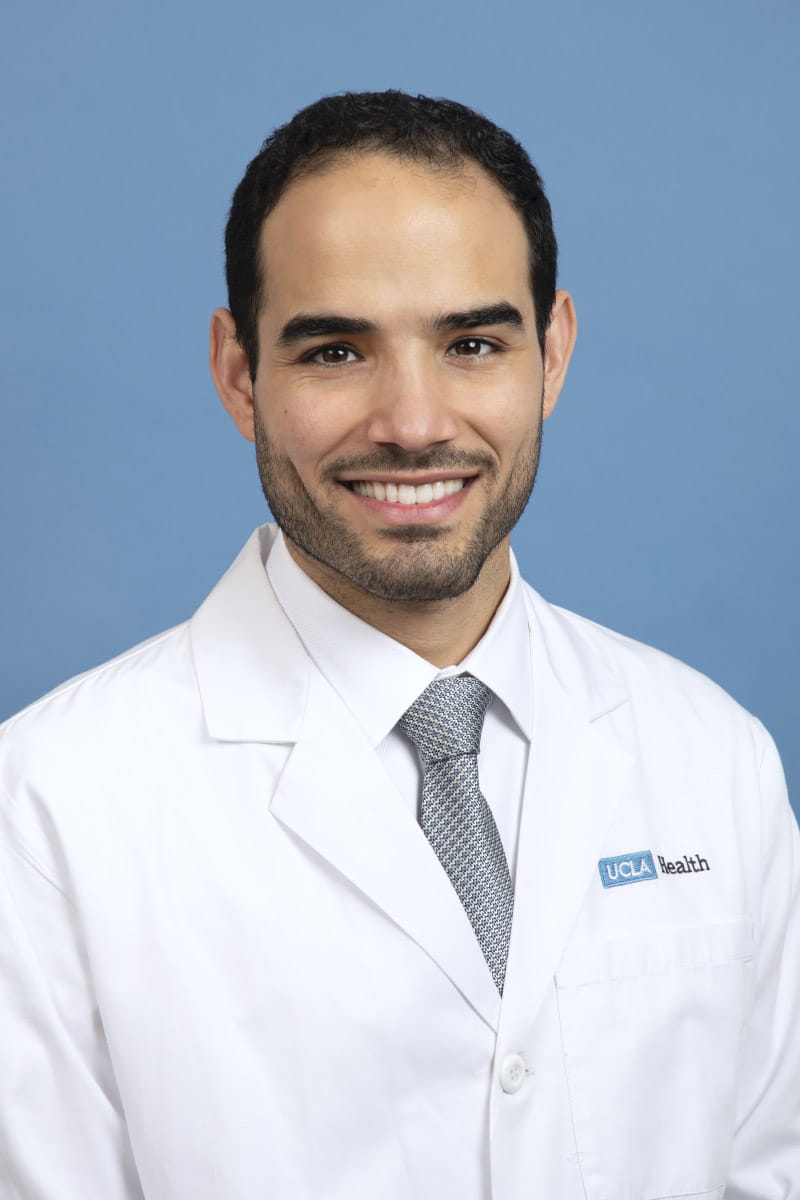How a lung doctor copes with health threats from the California wildfire that took his home
By Laura Williamson, American Heart Association News

The morning of Jan. 7, Dr. Reza Ronaghi and his wife, Nasim, left their home in California's Pacific Palisades with the clothes on their backs and work on their minds. They'd been putting in a lot of hours – he as a pulmonologist, she as a pediatric dentist – so they left Harlow, their fluffy Havanese, at doggie daycare. It was just another Tuesday.
Around 1 p.m., Ronaghi got an alert on his phone about a wildfire threatening his neighborhood. The text warned of a possible evacuation. An hour later, he got a new alert: Evacuate now.
"We were going to go back home and get some stuff," he said. "I texted my neighbors and they said there was a lot of traffic getting out of the Palisades. They told me not to come."
Ronaghi booked a hotel room and called the dog sitter. Then he started monitoring an app on his phone for updates on the fire's location. Wildfires weren't unusual for the region, but they'd never gotten this close to home. As the night wore on, he grew skeptical. The app showed the fire at a standstill, but the news reports spoke of it spreading rapidly.
"The next day, I saw video of Sunset Boulevard and the entire Palisades Village was wiped clean. The entire route to my house had burned. I knew the app at that point was not accurate at all. It was a gut-wrenching few hours, waiting for updates."
Around 3 p.m., Ronaghi's worst fears were confirmed: The fire had taken his entire neighborhood. He and his wife were allowed to return briefly to check on their home. It had burned to the ground.
"Everything we owned was gone," he said. "Everything. Everything. Everything was charcoal. From the sentimental to the valuable. Even the metal in the appliances had melted. I've never seen a fridge melt before. We were in shock."
Ronaghi, who wore an N95 mask for his brief visit to the fire-ravaged neighborhood, had one more worry on his mind: What was he breathing in?
According to the U.S. Environmental Protection Agency, wildfire smoke contains a complex mixture of pollutants that can cause a variety of health problems, ranging from minor eye and respiratory tract irritations to more serious ones, such as exacerbating asthma and heart failure. Wildfire smoke exposure also has been linked to an increased risk of heart attacks, strokes and pulmonary emboli, found a 2018 study in the Journal of the American Heart Association.
Few studies have been done on the health consequences of persistent exposure to wildfire smoke, and those that have been done involved firefighters, whose weeks-long, daily exposures were considerably higher than people living in the vicinity of the fires or returning intermittently to go through debris or take pictures for insurance.
Ronaghi, an interventional pulmonologist at UCLA Health in Los Angeles, talks about health precautions he's taking in the wake of the fires for "The Experts Say," an American Heart Association News series in which specialists explain how they apply their professional knowledge to their own lives. His remarks have been edited.

What long-term health threats do people face from wildfires?
First and foremost, we really don't know what wildfires do to people. There's not much data.
Typically, we know that if there's a lot of smoke in the air from a fire, you try to avoid it, especially if you have more susceptible lungs.
But when so many houses burn down, it's not just the smell of smoke that's a problem. Now you're dealing with fumes and chemicals from everything in a house that burns. These were old houses, so there was likely a lot of asbestos and lead paint. There were batteries, coolant from refrigerators and air conditioners that burned. Each of these can independently be toxic or carcinogenic. And we don't know the long-term impacts of breathing that in.
We also don't know how long the problem exists.
We know organic volatile compounds – the man-made chemicals in household cleaning products, paint and refrigerants – are difficult to get rid of. Do they stay in the soil? How long will we be inhaling them? We just don't know.
How do you protect yourself, and what advice do you have for neighbors and others who have to return to the burn sites?
I've been talking to neighbors and local news media about this. I tell them that if you're going back into those communities to be extremely cautious. Make sure you are fully protected, as if you are entering a biohazard zone. Wear face masks. At the very least wear an N95, but if you can, get the kind that painters wear, which are respirators. These are even better.
I also recommend wearing goggles or glasses that give full eye protection coverage. I'm wearing ski goggles. You want to prevent anything from entering your eyes, so don't just wear regular glasses.
Also, be fully clothed – no shorts and T-shirts. You want to protect your skin. And make sure you wear good gloves. Gardening gloves would be fine or construction gloves to prevent any skin contact with toxic debris. Make sure they are thick enough that they won't get ripped or torn by sharp objects.
People who are several miles away probably don't need to take extra precautions, but the truth is, nobody knows for sure.
What are you doing to protect your mental health?
My wife and I both have big families, and some of them were here in the beginning to help. I had a lot of colleagues and friends reach out to me. It's nice to see the community coming together for everyone. Without that, this would be 10 times harder.
Not having to worry about Harlow has helped. We take her to doggie daycare when we get too busy or go out of town. It was a blessing in disguise that we had taken her there the day of the evacuation.
We're still really in shock. I think it's very important for people to fully grasp what has happened. Everyone has their own mechanism for dealing with it. It's a big trauma. We don't really understand the toll this takes on people's lives, including myself. There's going to be a lot of post-traumatic stress disorder and anxiety from the stress of going through this.
Parents should know that this may be even harder on kids. They've been uprooted. They'll have to change schools. Parents should be aware that there will be long-term effects. Right now, everyone is just in survival mode, there's an adrenaline rush while people figure out how to meet immediate needs. But there's going to be a prolonged period of rebuilding.
This will all take time. But there is help out there from family, friends, employers, the county. It's important to use those support systems.





